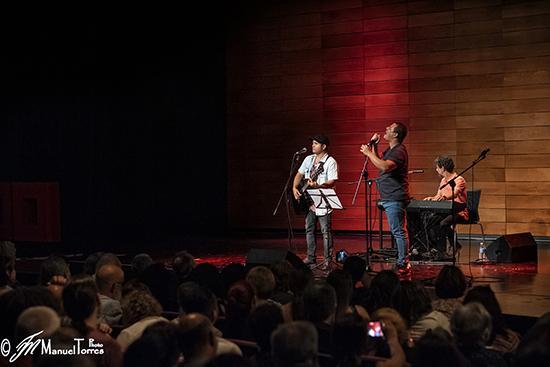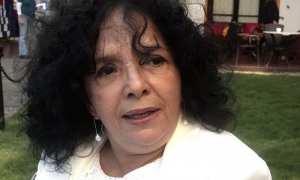
The musical duo Buena Fe returned to Cuba after a tour of Spain, the scene of one of the most regrettable receptions suffered by Cuban artists in recent history.
The hatred and political extremism shown by some Cubans led to the cancellation of some of the six live presentations originally planned for the tour. The aggressiveness that had been announced on social media turned into real action: "We actually thought that something could really happen," said Duo director Israel Rojas in a meeting with UNEAC members and journalists.
"We arrived in Spain, which, like the rest of Europe, is moving to the rightwing where fascist tendencies are appearing and, unfortunately, the Cubans who live there are joining them."
Yoel Martínez, the second voice of the duo, told those present that it was time to spread the word and study the facts, since they were not the first and, according to the public statements of these opponents, they will not be the last.
"When you see Cubans trying to join political parties like Vox, you realize that many of them are musicians or dancers who were trained in our schools," Rojas said, adding that "something has gone wrong in terms of artistic education when so many have these hard feelings toward Cuba."
The duo compared their case to what happened in Miami, where the Cuban team playing in the semifinals of the World Baseball Classic was insulted and attacked by Cuban immigrants. " The image that is being given of our people is regrettable. " Martínez said.
Rojas referred to the urgent need to form alliances and take measures to protect creators when they go abroad, since their legal vulnerability outside of Cuba is at an obvious and dangerous disadvantage.
"We have to be prepared, this is a reputation-destroying machine and, if you are not strong, it will destroy you mentally. More than the physical damage it was the feeling of being unprotected that affected me the most. It is unacceptable to go on stage afraid of the impact of a bottle thrown at you".
But the experience lived by Buena Fe leaves valuable lessons and more positive. First, that Cuba is not alone, because when it seemed that the tour was doomed, a solidarity movement of people of all ages, Cuban or not, leftist or not, supporters of the artists or not, rose up against the injustices suffered by the duo.
Second, there is no bad publicity, because the events, although horrible and regrettable, caused people who had never heard of Buena Fe to listen to their music and get to know Cuba in a broader sense than political: cultural. Finally, Buena Fe has shown that despite the many ways of being death, they are alive, they are survivors.






